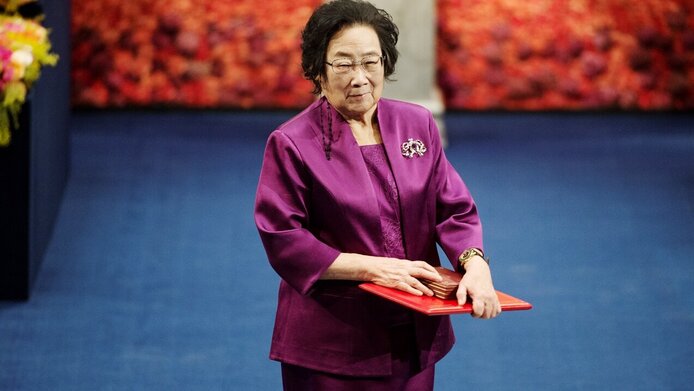The stony road to equality

“Career perspectives for researchers at Austrian universities are marked by conditions that impede a continuous career, open up only narrow career perspectives rather late in working life, and turn chosen career paths into one-way streets”, concludes the Austrian Science Ministry’s Research Action Plan from 2015. University staff policy has long been suffering from imbalances. This seems to be the consensus among all high-level representatives in Austria’s university system. Precarious employment, consecutive short-term contracts (‘chain contracts’) and a dire lack of tenure-track positions make it difficult for young academics to become established in a competition-driven system. Women are particularly affected by this situation. When it comes to gender equality, progress at universities is still slow and arduous despite an improved legal foundation. Although the share of women professors has grown from 6 to 22 percent since 2000, the “overall development is rather disappointing”, notes Johanna Hofbauer from the Vienna University of Economics and Business (WU Wien) in the interview with scilog.
Precarious employment In 2000, universities in Austria introduced a new system governing consecutive short-term contracts with the intention of protecting staff against precarious employment conditions by limiting the duration of temporary contracts to a maximum of six years. Given the lack of tenured positions, this system not only had a deterrent effect on women, but generally resulted in a high proportion of temporary employment and even more precarious job situations. In Austria, about three quarters of scientific staff work under short-term contracts.
Very different approaches to equality issues
In a project supported by the FWF, the sociologist analysed science careers at universities with a focus on equality aspects. Her findings are sobering: only one of the four universities investigated has succeeded in firmly enshrining equality objectives in the framework of the comprehensive structural reforms undertaken as from the beginning of the new millennium. “In the others, the changeover to entrepreneurial forms of management has not brought about a cultural change. These universities are still addressing very basic equality issues”, is how Hofbauer summarises the study results. This situation persists despite the fact that the legal provisions underlying university reforms since 2000 have created important prerequisites for gender equality at universities. Today, the issue is part of the agenda and institutional remit of the strengthened management bodies, i.e. the rectors’ offices. While the objective of equal career opportunities for both genders now has a firm basis, at least in formal terms, the scientific findings demonstrate that practical implementation differs greatly from one institution to the next. “One would think that the University Act creates a level playing field. Our investigations have shown that this was not the case”, reports Johanna Hofbauer.
New: tenure track In 2009, a so-called “career model” was introduced at universities. One of the intentions behind it was to counteract the brain drain from Austria. The model is comparable to the tenure-track system in the English-speaking world. For the first time in many years, this provided young scientists with the perspective of an assessable career path and continuous employment leading to a professorship. It provides for a six-year contract as assistant professor with agreed qualification requirements. If the requirements are fulfilled, the contract is converted into a tenured position as an associate professor. Universities are still hesitant to implement this model. Currently, only five percent of scientific personnel occupy “career positions”.
Case studies, gender competence and responsible administrators
In the case studies carried out at four Austrian universities with different specialisations, the team of principal investigator Hofbauer analysed documents (from development plans to performance agreements and the new career model) and conducted interviews with senior university executives, equality officers and young scientists (postdocs). In order to achieve gender equality, a university needs to make sure that the responsible administrators have the necessary awareness and create a favourable environment in their respective organisations. A rector’s office staffed with individuals interested in the issue, gender competency and research, development goals laid down in writing and appropriate human resource management, are the essential prerequisites for initiating a lasting cultural change in science organisations, which are still dominated by men. – This is a central finding of the study.
Transparency, resources and networking
Given the neoliberal dynamics, i.e. juggling between the poles of competitiveness and equal opportunity, as public universities have to do today, equal treatment should not be seen as yet another requirement which impedes other reforms. “This conflict is artificial”, says Hofbauer. “Instead, we have to ask how we treat young talents”, she emphasises and adds: “Decision-makers can evade equality objectives by clever argumentation and thus diminish women’s career opportunities. Such evasion is easier if a university has no equality culture.” A positive example shows the way to successful implementation: formalising decision-making processes and ensuring their transparency promotes equality efforts, but only if these efforts are undertaken by protagonists who have access to organisational power and feminist know-how plus a supportive network.
Personal details Johanna Hofbauer is a researcher and associate professor at the Institute of Sociology and Social Research at WU Wien. Her research focuses on gender in science as well as labour and sustainability research. The FWF project Academic Careers and Gender (2012-2016) was part of the DACH project Entrepreneurial University and GenderChange. The team investigating Austrian science careers included: Birgit Sauer (University of Vienna), Katharina Kreissl (TU München) and Angelika Striedinger (IHS Vienna).
Publications and contributions





